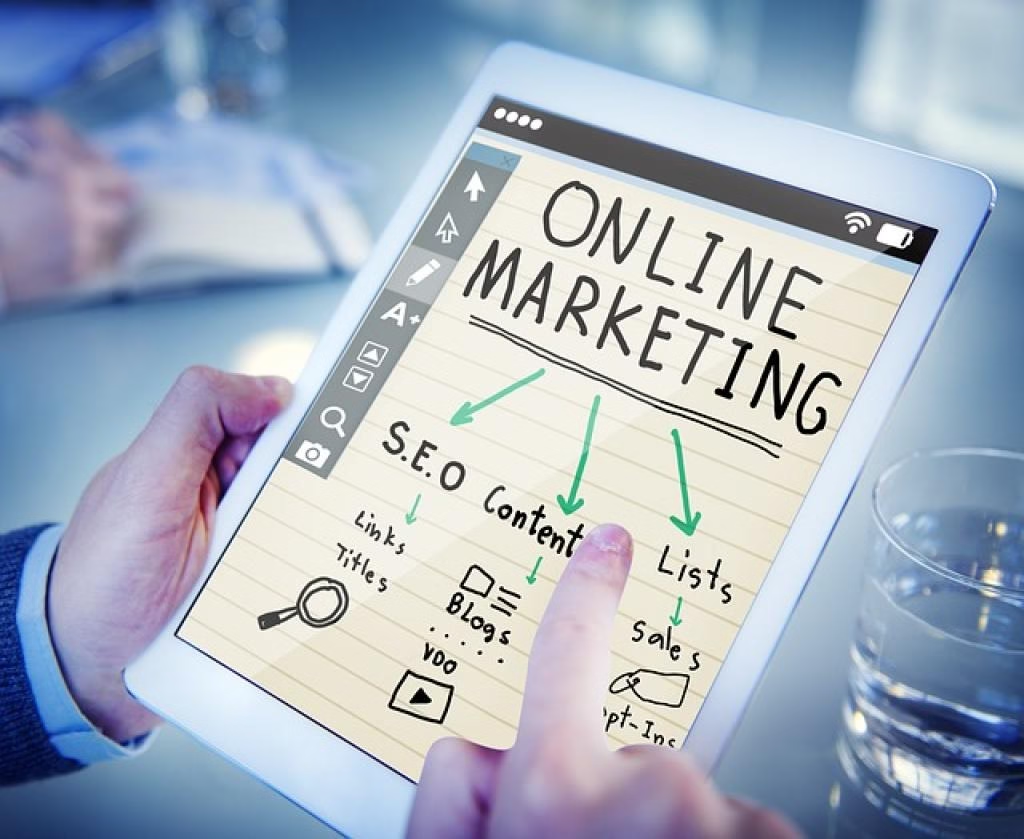In today’s fast-paced digital world, staying ahead of the curve is crucial for marketers. This is where artificial intelligence (AI) comes into play, revolutionizing the way businesses craft their marketing strategies. Gone are the days of one-size-fits-all campaigns; AI offers precision and personalized customer engagement like never before.
Imagine understanding your audience’s needs even before they do. AI analyzes vast amounts of data in real-time, uncovering insights and trends that human marketers might miss. From chatbots delivering instant customer service to predictive analytics optimizing ad spend, AI’s capabilities are reshaping how brands connect with consumers.
As we journey through this article, we’ll explore how AI is not just a tool but a transformative force driving innovation and efficiency in digital marketing. It’s time to embrace this change and discover how AI can elevate your marketing strategy to new heights.
Understanding the Role of AI in Digital Marketing
AI isn’t just a futuristic concept—it’s a present-day game-changer in digital marketing. At its core, AI integrates machine learning, natural language processing, and data analytics to deliver smarter marketing solutions. But how exactly does it fit into our digital strategies?
Firstly, AI enhances customer experiences. By analyzing behavior patterns, AI helps marketers personalize content and offers tailored to individual preferences. This level of customization was previously difficult to achieve and proves invaluable in building stronger customer relationships.
Data-Driven Decision Making
Another significant advantage is AI’s ability to process large datasets quickly. It extracts actionable insights that guide marketing decisions, from content creation to distribution strategies. This data-driven approach allows marketers to make informed choices, optimizing efforts for better results.
AI also streamlines operational tasks. Automation tools powered by AI can efficiently handle everything from email marketing campaigns to social media management. This frees up time for marketers to focus on strategy and creativity.
Incorporating AI into digital marketing is no longer optional. Understanding its role helps businesses not only to keep pace with competitors but to set themselves apart as leaders in their industry. Ready to harness AI’s potential? Let’s explore further.
AI-Powered Personalization in Marketing Campaigns
In a world where consumers expect brands to know what they want, AI-powered personalization is a marketer’s secret weapon. This technology allows businesses to craft marketing campaigns that resonate on a personal level, transforming broad messages into customized experiences.
AI analyzes individual customer data, including browsing history, past purchases, and even real-time interactions. This insight enables marketers to present the right product to the right person at the right time. Instead of bombarding consumers with generic ads, businesses can deliver relevant content that truly interests their audience.
Creating Customer-Centric Experiences
Additionally, AI doesn’t just personalize content—it anticipates needs. By predicting future behaviors, AI helps marketers stay one step ahead, offering solutions before customers even realize they need them. This proactive approach enhances customer satisfaction and boosts loyalty.
Furthermore, dynamic pricing and personalized recommendations are just a few examples of how AI transforms user experiences. From customized emails to targeted product suggestions, AI ensures every touchpoint reflects the unique preferences of each consumer.
The era of guesswork is over. AI enables marketers to move beyond assumptions and deliver the personalized experiences that customers crave, setting new standards for engagement and conversion. It’s personalization perfected.

Enhancing Customer Engagement Through AI Tools
Engaging customers has always been a key goal for marketers, and AI is transforming this endeavor with innovative tools that enhance interaction and satisfaction. By leveraging AI, businesses connect with customers more effectively, fostering deeper relationships.
AI-powered chatbots are at the forefront of this evolution. They offer instant customer service, answering queries, and resolving issues 24/7. These bots create seamless experiences, ensuring that customers are always supported, regardless of the hour.
Streamlining Communication Channels
Furthermore, AI-driven sentiment analysis tools allow marketers to gauge customer emotions and preferences instantly. By analyzing social media interactions and feedback, businesses can adjust their strategies promptly, ensuring messages strike the right chord.
Predictive analytics play a crucial role as well, helping to forecast trends and adapt content accordingly. This foresight keeps the interaction fresh and relevant, encouraging continuous engagement.
AI tools also enhance personalized marketing efforts, ensuring every email, notification, or ad reaches its intended audience with precision. This tailored communication strengthens brand affinity, as customers feel heard and valued.
With AI, customer engagement is no longer a one-sided conversation. It becomes an interactive, responsive dialogue, transforming casual observers into loyal advocates. It’s AI’s magic in action.
The Impact of AI on SEO Strategies
Search engine optimization (SEO) is at the heart of digital visibility, and AI is reshaping how marketers approach this vital practice. As search engines become smarter, so too must the strategies used to navigate and harness their algorithms.
AI efficiently analyzes search patterns and user intent, offering insights that go beyond mere keyword frequency. By understanding context and semantics, AI helps marketers create content that aligns with what users are genuinely looking for, enhancing visibility and relevance.
Voice search is another area experiencing growth, thanks to AI. With more users relying on voice-activated devices, marketers must adapt their SEO strategies accordingly. AI aids in optimizing content for natural language processing, ensuring brands appear in results when consumers ask conversational questions.
Optimizing for Both Humans and Machines
Content creation is also becoming more refined with AI. Tools that suggest topic ideas, generate content outlines, or provide real-time SEO insights help marketers produce high-quality, search-friendly material.
Furthermore, AI helps track SEO performance more accurately, delivering analytics that pinpoint what’s working and what’s not. These insights empower marketers to refine strategies continuously, staying ahead in the competitive digital landscape.
In the evolving world of SEO, AI is proving to be an indispensable ally, driving more meaningful and impactful search experiences. It’s a dynamic shift towards smarter, more adaptive strategies.
Measuring ROI and Performance with AI Analytics
Understanding return on investment (ROI) is crucial in assessing the success of marketing strategies, and AI analytics is revolutionizing how this is done. By offering deeper insights and more accurate data interpretation, AI enables marketers to fine-tune their efforts with remarkable precision.
AI-powered analytics tools sift through mountains of data to identify trends and patterns that may not be immediately visible. This empowers marketers to gauge the effectiveness of campaigns, from initial outreach to conversion, ensuring every dollar spent is maximized.
Real-time analytics provided by AI accelerates the decision-making process. Businesses can quickly adjust strategies based on what is working, fine-tuning budgets and resources toward the highest-performing avenues.
Enhancing Predictive Capabilities
Furthermore, AI enhances predictive capabilities by using historical data to forecast future performance. This forward-looking insight helps set realistic goals and expectations, making long-term planning more effective and efficient.
AI’s role in attribution modeling is equally important. By accurately attributing sales and conversions to specific channels or actions, marketers can understand which efforts yield the best results, refining strategies for maximum impact.
In the realm of ROI measurement, AI analytics transforms guesswork into certainty, providing a comprehensive view of performance that elevates strategic outcomes. It’s smarter investment and smarter marketing all in one.
The Bottom Line: Embracing AI for Future Marketing Success
As we reach the conclusion of this exploration into AI’s transformative role in digital marketing, one thing is clear: AI is not just a fleeting trend but a fundamental shift reshaping how businesses connect with their audiences. From personalized campaign strategies to AI-driven SEO and enhanced customer engagement, the potential for AI to elevate marketing efforts is vast.
The integration of AI into marketing is more than just adopting new tools—it’s about changing mindsets. By effectively interpreting data, predicting trends, and automating processes, AI enables marketers to focus more on creativity and strategy. This balance between technology and human insight leads to more meaningful connections with customers.
In addition, AI’s capacity to provide real-time analytics and measure ROI helps marketers refine their approaches with precision, ensuring resources are used most effectively. By utilizing AI, businesses can achieve higher conversion rates, increased customer loyalty, and ultimately, a stronger market position.
However, embracing AI requires openness to continuous learning and adaptation. As AI technology evolves, staying informed about the latest developments and best practices is key to reaping its full benefits. The good news is, as marketers grow alongside new AI capabilities, the potential for innovation and success is limitless.
In summary, the path to future marketing success is intertwined with AI. By embracing its capabilities and integrating them thoughtfully into strategies, businesses are poised not just to survive in the competitive digital landscape but to thrive. The future of marketing is here, and it promises to be more exciting than ever.
















